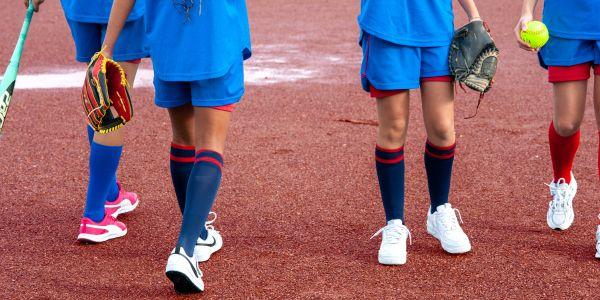Using Visualization to Boost Sports Kids’ Confidence
Adelaide Goodeve began coaching athletes of all ages in a very roundabout way.
When she was struggling with chronic fatigue syndrome, she learned how to retrain her brain, and in doing so, became a triathlete.
Now Adelaide helps pro and amateur athletes cut minutes off their time by finding performance solutions using mindset strategies and neuro performance technology.
With sports kids, she focuses on using visualization and other strategies to improve their confidence.
For example, Goodeve worked with a 15-year-old tennis player who was bullied and struggled with low confidence.
Goodeve told him to imagine he had a force field around him, and when he heard unhelpful words coming toward him, to retreat behind the force field so the words couldn’t get in. She told him to visualize the words bouncing off the force field.
To boost his confidence, she told him to do another visualization exercise.
She told him to go back in time to a moment when he could feel powerful and confident. Then, she asked him to connect those strong feelings to a physical place, in this case, a place on his hand.
The idea was to anchor states of positivity and confidence onto his hand, and when he pressed that area of his hand, it would trigger those powerful feelings.
“You clear your mind, press the point in your hand, feel the feelings rushing back into that positive moment. This will anchor that feeling,” she says.
This process also involves kids’ changing their inner voice so it’s positive, she notes.
“It takes practice. You need your language to be really good,” she says.
Instead of kids telling themselves, “I don’t want to be sad anymore,” they should tell themselves, “I want to feel positive and bouncy and light,” Goodeve says.
Her advice to sports parents: “I would enforce that kids have an amazing inner power and they can choose whether it’s effective or not.” In addition, parents need to watch their own language and ensure it’s positive, she says.
Listen to the Entire Interview with Adelaide Goodeve.
Related Articles on Youth Sports:
- How Young Athletes Can Use Mental Imagery to Boost Performance
- How Young Athletes Benefit From Mental Imagery
- How Athletes Can Use Mental Imagery To Help Them Succeed
*Subscribe to The Sports Psychology Podcast on iTunes
*Subscribe to The Sports Psychology Podcast on Spotify
The Composed Sports Kid

“The Composed Sports Kid” audio and workbook digital download program for young athletes and their parents or coach helps kids cope with frustration and anger in sports. Help your sports kids learn how to manage expectations and let go of mistakes so they can keep their head in the game.
The Composed Sports Kid system is really two programs in one–one program to train parents and coaches how to help their kids practice composure, and one program that teaches young athletes–ages 6 to 13–how to improve composure, let go of mistakes quickly, have more self-acceptance, and thus enjoy sports more!

